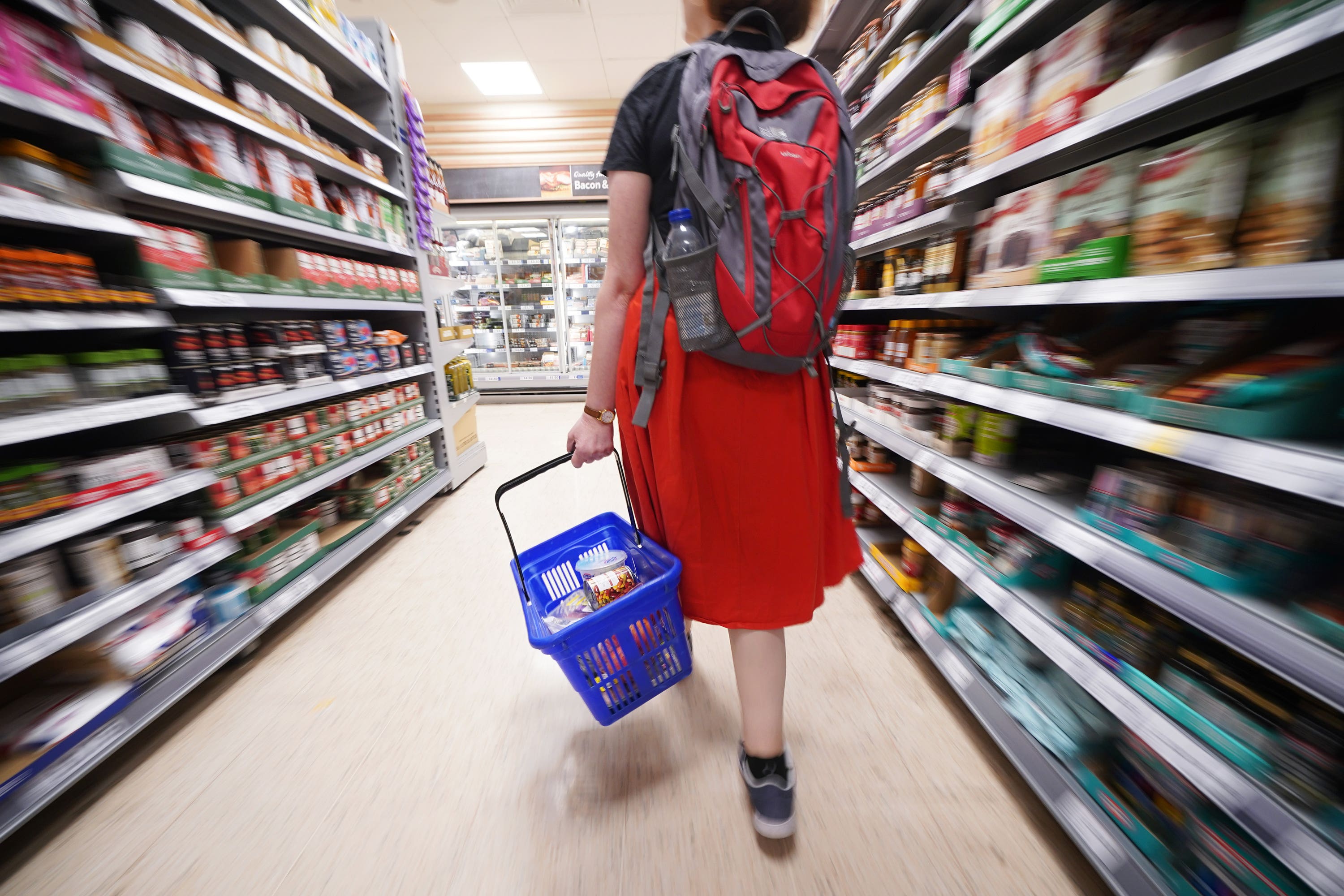Cost of cheddar cheese, white bread and porridge oats soar – Which?
Overall inflation on food and drink at the supermarket continued to rise in March to 17.2%, up from 16.5% the month before, the watchdog found.

Your support helps us to tell the story
From reproductive rights to climate change to Big Tech, The Independent is on the ground when the story is developing. Whether it's investigating the financials of Elon Musk's pro-Trump PAC or producing our latest documentary, 'The A Word', which shines a light on the American women fighting for reproductive rights, we know how important it is to parse out the facts from the messaging.
At such a critical moment in US history, we need reporters on the ground. Your donation allows us to keep sending journalists to speak to both sides of the story.
The Independent is trusted by Americans across the entire political spectrum. And unlike many other quality news outlets, we choose not to lock Americans out of our reporting and analysis with paywalls. We believe quality journalism should be available to everyone, paid for by those who can afford it.
Your support makes all the difference.The cost of British food staples such as cheddar cheese, white bread and porridge oats have soared on a year ago, according to latest inflation figures from Which?
Overall inflation on food and drink at supermarkets continued to rise in March to 17.2%, up from 16.5% the month before, the watchdog found.
Cheddar cheese prices increased by an average 28.3% across eight major supermarkets – Aldi, Asda, Lidl, Morrisons, Ocado, Sainsbury’s, Tesco and Waitrose – compared to a year ago.
However, one cheese, Dragon Welsh Mature Cheddar 180g at Asda, increased from £1 in the three months to the end of March last year to £1.80 across the same period this year – an 80% hike year on year.
The consumer group analysed inflation on more than 26,000 food and drink products at the eight supermarkets, and also selected a basket of staple foods including cheddar cheese, sliced white bread, pork sausages, white potatoes and porridge oats to find which of these everyday products had seen the biggest price hikes.
The cost of porridge oats went up by an average of 35.5% across all eight supermarkets compared to the same time last year.
However, the worst single example of inflation on porridge oats was at Ocado where Quaker Oat So Simple Protein Porridge Pot Original 49g went from 94p to £1.56 – an increase of 65.5%.
Large 800g loaves of sliced white bread saw an average increase of 22.8%, but The Bakery at Asda Soft White Medium Sliced Bread 800g increased by 67% from 56p to 94p.
Average inflation in white potatoes was around 14%, but a four pack of baking potatoes at Morrisons increased from 40p to 66p – a rise of 63.5%.
Pork sausages increased by an average of 26.8% across the supermarkets. However Asda’s Just Essentials budget range of eight sausages increased in price by 73.5% from 81p to £1.40, while Tesco’s value Woodside Farms pack of eight went from 80p to £1.39, a 73.3% increase.
The figures show it continues to be the cheapest products which are being the hardest hit by inflation in percentage terms.
Supermarkets have the power to do more to support people who are struggling
Which?’s tracker shows supermarket own-label budget items – which are still the cheapest overall – were up 24.8% in March compared with the same time last year, higher than the 20.5% increase seen on standard supermarket own brands and the 13.8% on branded and premium own brand ranges.
It warned that even value foods, despite remaining a cheaper option, were at risk of becoming too expensive for those on the tightest budgets.
Which? is calling on the major supermarkets to act by making budget line items widely available, particularly in areas where people are most in need, and to make pricing and offers more transparent so that people can easily work out which products are the best value.
Sue Davies, Which? head of food policy, said: “Our latest supermarket food and drink tracker paints a bleak picture for the millions of households already skipping meals of how inflation is impacting prices on supermarket shelves, with the poorest once again feeling the brunt of the cost-of-living crisis.
“While the whole food chain affects prices, supermarkets have the power to do more to support people who are struggling, including ensuring everyone has easy access to basic, affordable food ranges at a store near them, particularly in areas where people are most in need.
“Supermarkets must also provide transparent pricing so people can easily work out which products offer the best value.”